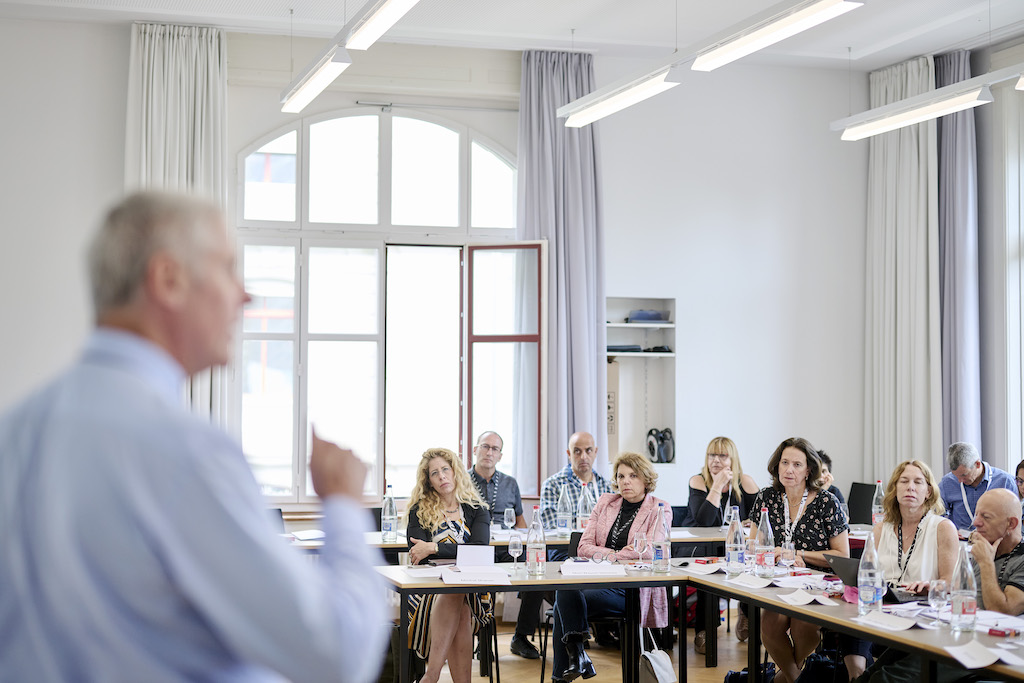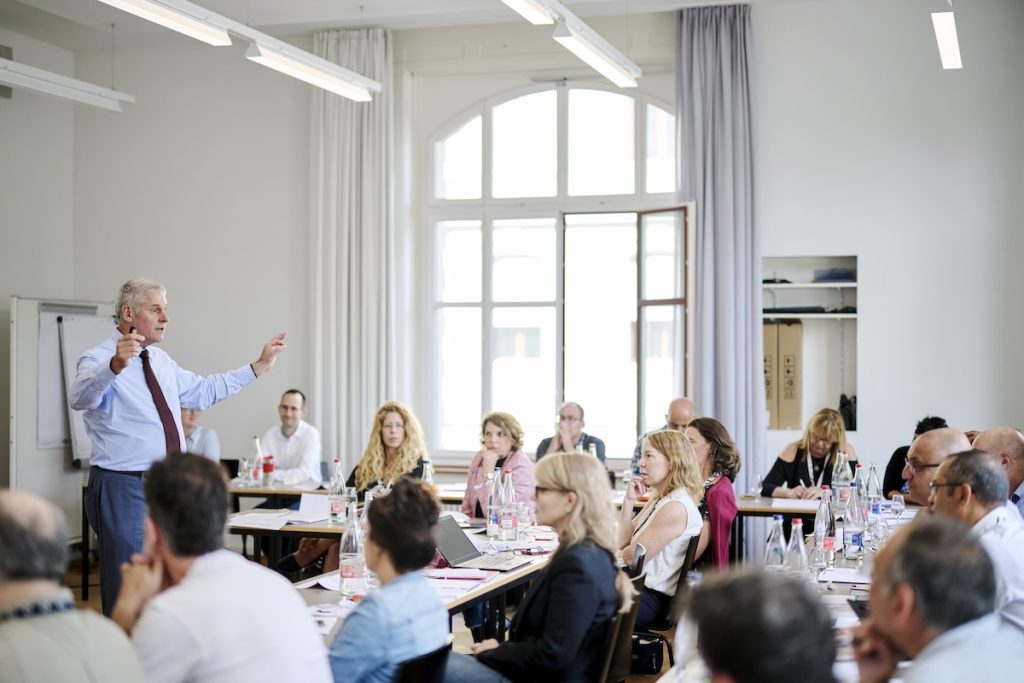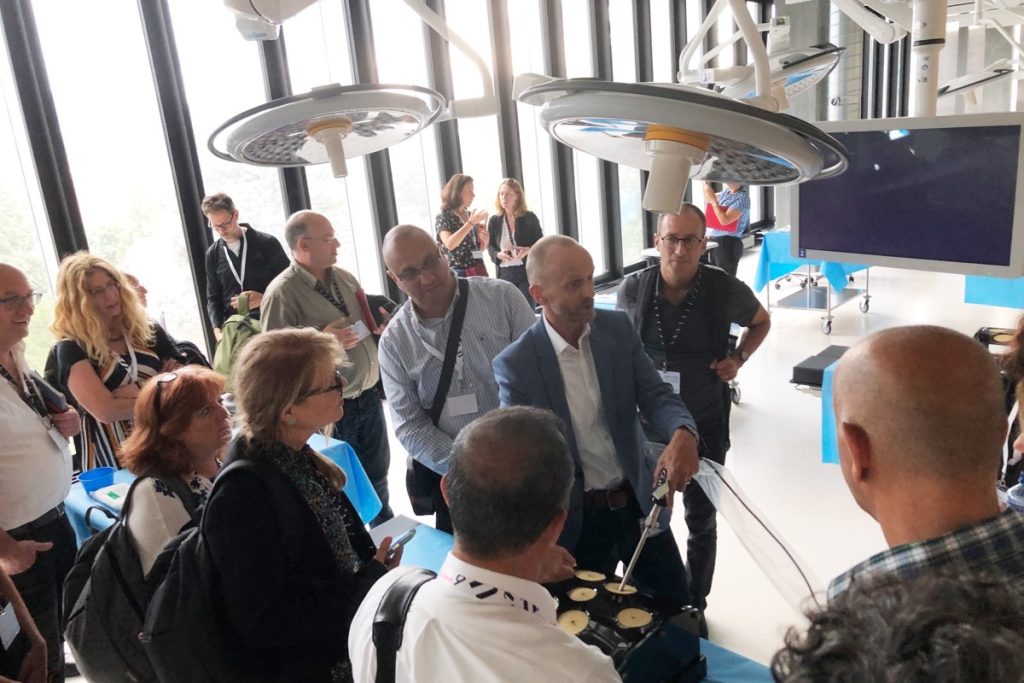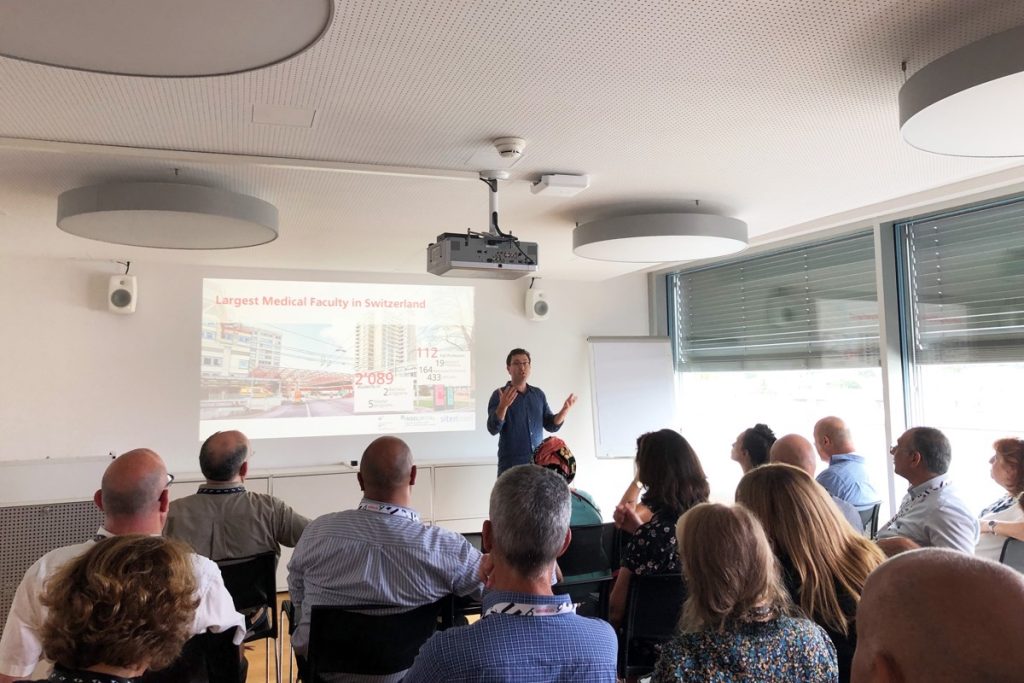Israeli academic leadership delegation visits Bern

At the beginning of July, the executive board of the University of Bern welcomed a leadership delegation from several universities in Israel. The aim of their visit was to discuss topics at the interface between research and management.
Universities face common cross-border challenges, such as climate change and disruptive technologies. Tackling these topics requires shared solutions and a willingness to learn from each other. In this context, rectors, deans and senior administrative staff from several universities in Israel visited the University of Bern. It is the first large international delegation to visit the University of Bern since the beginning of the pandemic. The visit was originally planned for summer 2020 but had to be delayed.
The members of the delegation are taking part in a further education programme entitled “Leadership in Academia”, which was founded by the Edmond de Rothschild Foundation and the Council for Higher Education in Israel. The programme aims to train executives and promote exchanges between universities. The participants want to learn from each other and work on shared solutions. In recent years, participants of the “Leadership in Academia” programme visited the University of Zurich and the Swiss Federal Institute of Technology in Zürich.
The University of Bern as a best practice model

The delegation was received by members of the executive board, represented by Christian Leumann, Rector, Virginia Richter, Vice Rector Development, Hugues Abriel, Vice Rector Research and Daniel Candinas, former Vice Rector Research. Leumann presented the university’s strategy and emphasized the importance of working in an interdisciplinary manner to understand common challenges and develop solutions.
The first part of the visit focused on round-table discussions about best practices in the areas of strategy, research management, innovation and internationalisation. In the discussions one could often hear people say: “here everything works completely differently from what we are used to”. Learning from such differences and taking home impressions from the trip to Switzerland was an important element of the visit.
Bern as a leading medical centre

The afternoon was devoted to the topic of medicine and included a visit to the Insel Campus Bern. Simon Rothen, Chief Executive Officer of sitem-insel, the Swiss Institute for Translational and Entrepreneurial Medicine, explained the process of how from an idea a marketable product is developed. Rothen also explained the cluster effect of the Insel Campus Bern, where a large amount of interdisciplinary knowledge is available on a small geographical area.
A highlight of the visit to sitem-insel was seeing the Clinical Anatomy Training and Research Center, with its modern equipment. The operations can be transmitted directly to an auditorium via video link for training purposes.
A few minutes’ walk from sitem-insel is the ARTORG Center for Biomedical Engineering Research. The director of the centre, Raphael Sznitman, explained how innovations are driven here through the collaboration of engineers and medical professionals. Interdisciplinary teams work on new ways to treat diseases with innovative technologies, such as artificial intelligence.

The visitors were given an insight into the research groups “Artificial Intelligence in Health and Nutrition”, “Hearing Research Lab”, “Gerontechnology and Rehabilitation” and “Organs-on-Chip Technologies” (OOC). The researchers of the OOC recently had a breakthrough in building a novel lung model, which will have a wide range of uses in future research and could reduce animal testing. The first generation of this “lung-on-chip” is currently being developed further for commercial uses by a start-up named AlveoliX. The AlveoliX office is in the sitem-insel building, which is a good illustration of the cluster effect of Bern as a medical centre.
After the visit to Bern, the delegation travelled to Geneva, where they visited the university, the United Nations Office at Geneva and the European Organization for Nuclear Research (CERN). The discussions during the visit of the “Leadership in Academia” delegation gave its participants inputs and tools to tackle future challenges and could potentially become the beginning of a shared network to pursue future innovations together.
Text: Caspar Bienek
Images: Manu Friedrich and Caspar Bienek
This article was first published in Uniaktuell, the online magazine of the University of Bern, on 13 July 2022.